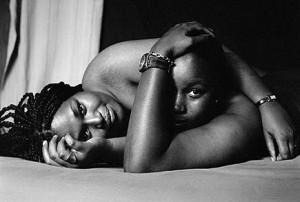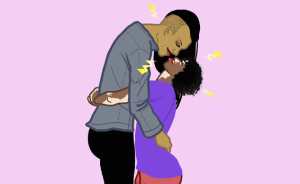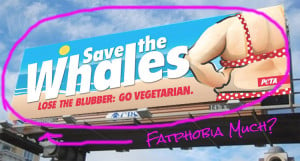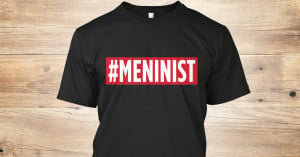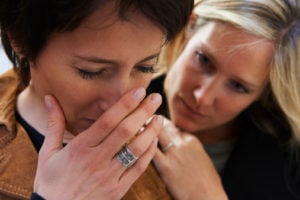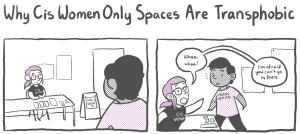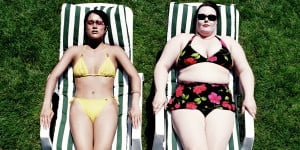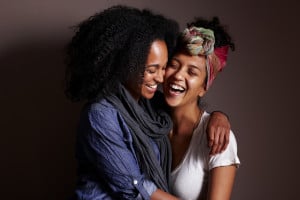Being black and queer myself, I understand the difficulty black LGBTQ women face when coming out to their black friends and family. There’s an unstated rule in a lot of black households that community comes first, and coming out threatens this community ideal for some.
Being LGBTQ seems to break with the traditional roles and expectations of black family and religious life, and queer women too often have to deal with being labeled selfish, rebellious, or white acting after coming out.
To be fair, homophobia in the black community is a real but sometimes overstated problem. There are those of us who strive to be allies of LGBTQ people, including those that are part of our own racial community.
Being an ally requires common sense, good listening, and an understanding of why queer black women don’t always feel safe in their own communities.
Sometimes straight members of the black community are oblivious to the assumptions they make about queer black women or the reality of heterosexual privilege. Straight black people may be aware of racial injustices and how to combat them without understanding the additional discrimination faced by LGBTQ people and women.
So to help you be a better ally, here are some thoughts to chew on:
Why Be an Ally?
- Because if you are pro-black women, you won’t support discrimination against any black women, including queer women.
- Because your mothers, sisters, daughters, friends, aunties, cousins, and other relations may be lesbian, bisexual, pansexual, or transgender.
- Because you’re aware of the hypocrisy and Eurocentrism that’s often behind black homophobia.
- Because you’re tired of black lesbianism and bisexuality being fetishized and sensationalized in the media.
Allies Don’t:
- Police queer woman’s gender expression. Saying things like, “If lesbians are attracted to women, why do they date studs? Why not date a dude?” is erasing to women who date or prefer masculine-presenting women. Studs, butch women, AG’s, and so on, are not “trying” to be men—they’re being themselves. Instead, be aware that there are as many gender presentations as there are people. Even if a woman stands out as different because of her gender presentation, she is probably doing what’s normal for her. Be respectful of every woman’s choices about her body and level of comfort.
- Expect lesbians to conform to heterosexual relationship dynamics. Asking a lesbian couple a question like, “So which of you is the man in the relationship?” makes the assumption that there is always a man and a woman in every relationship. On that note, assuming that a woman is dominant or submissive based on her gender presentation, or that all studs like femmes and vice versa, is heterosexism rearing its ugly head. Instead, remember that “normal” is relative. There is no one gold standard for how a relationship should work. So let go of the “boy-girl” dynamic if you support women who don’t conform to these roles in their relationships, same-sex or otherwise.
- Treat lesbianism or bisexuality as exotic or kinky. This particularly applies to men who, through cultural conditioning or pornography, have only seen lesbians as objects of male fantasy. Black women have to deal with the objectification and othering of their bodies enough as it is. Allies don’t add to the problem by asking intrusive questions about lesbian women’s sex lives or questioning transgender women about their genitalia. Instead of eroticizing lesbianism, understand that most queer black women just want to live their lives as part of their communities. They have valid, loving relationships that are every bit as private and meaningful as the relationships between straight couples.
Allies Do:
- Respect that queer women of color are at risk of being disowned or discriminated against if they come out. Allies do not take it upon themselves to tell family members or associates that someone else is queer. Coming out can be sensitive, sometimes even dangerous. So the woman in question should be allowed to come out on her own time.
- Notice homophobia in the black community and respond. Homophobia has become so common in pop-culture that it’s easy to laugh it off to avoid confrontation, but it’s really best to say something. It’s hard to feel safe in our communities when people are slinging hate speech around so speak up.
- Support friends or family members that come out to you. The easiest way to be supportive is to truly listen to what she has to say. Society lumps a lot of stereotypes and assumptions on black and LGBTQ women, so it’s refreshing when they can come out to someone who doesn’t try to force them into a box.
These are just some ways that we can take proactive steps to creating a safer, more welcoming black community for our queer sisters.
What are other steps we can take? Share below in the comments!
Jarune Uwujaren is a Contributing Writer for Everyday Feminism. A Nigerian-American recent graduate who’s stumbling towards a career in writing, Jarune can currently be found drifting around the DC metro area with a phone or a laptop nearby. When not writing for fun or profit, Jarune enjoys food, fresh air, good books, drawing, poetry, and sci-fi.
Search our 3000+ articles!
Read our articles about:
Our online racial justice training
Used by hundreds of universities, non-profits, and businesses.
Click to learn more


